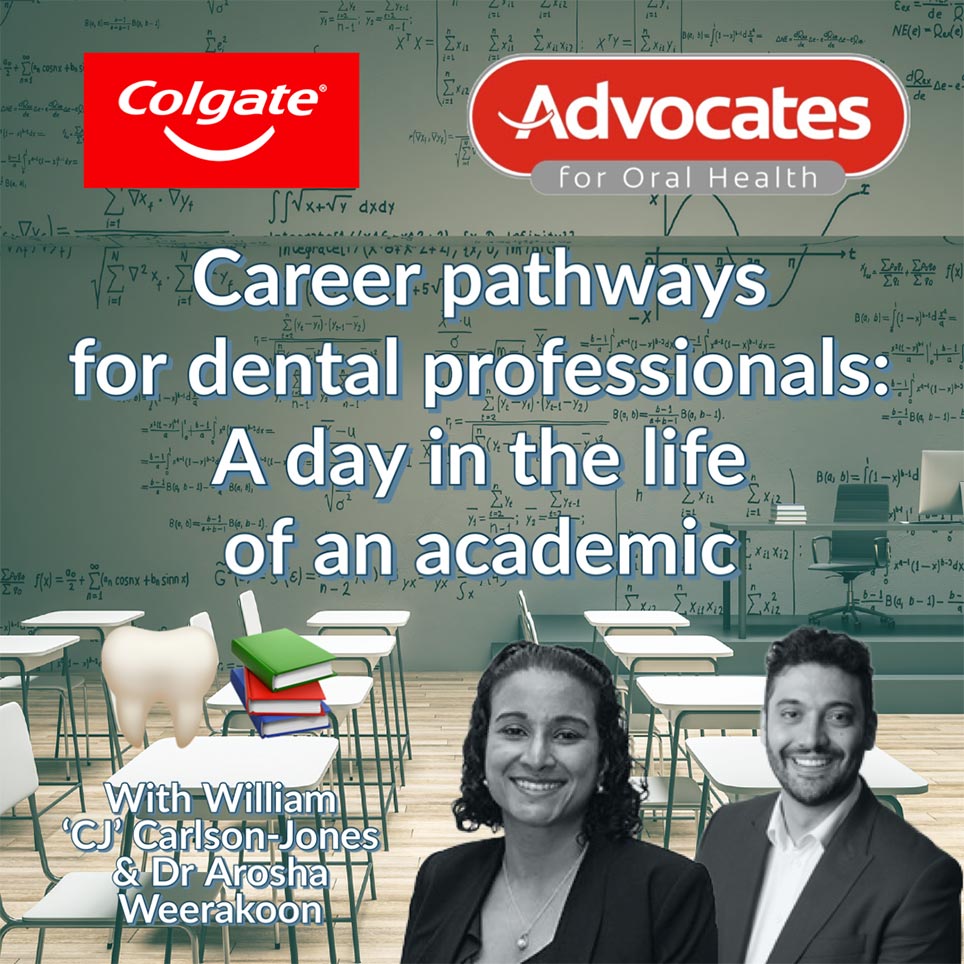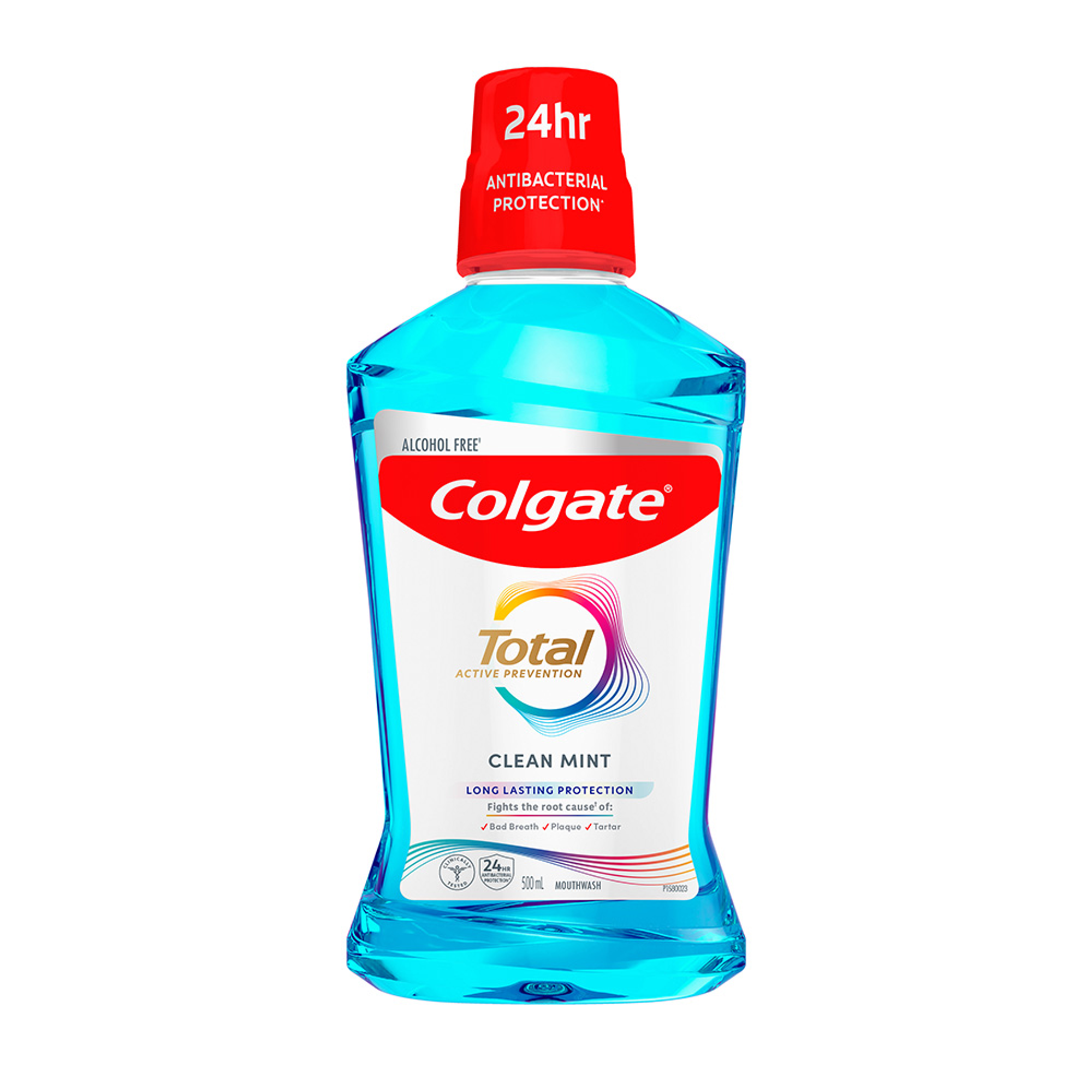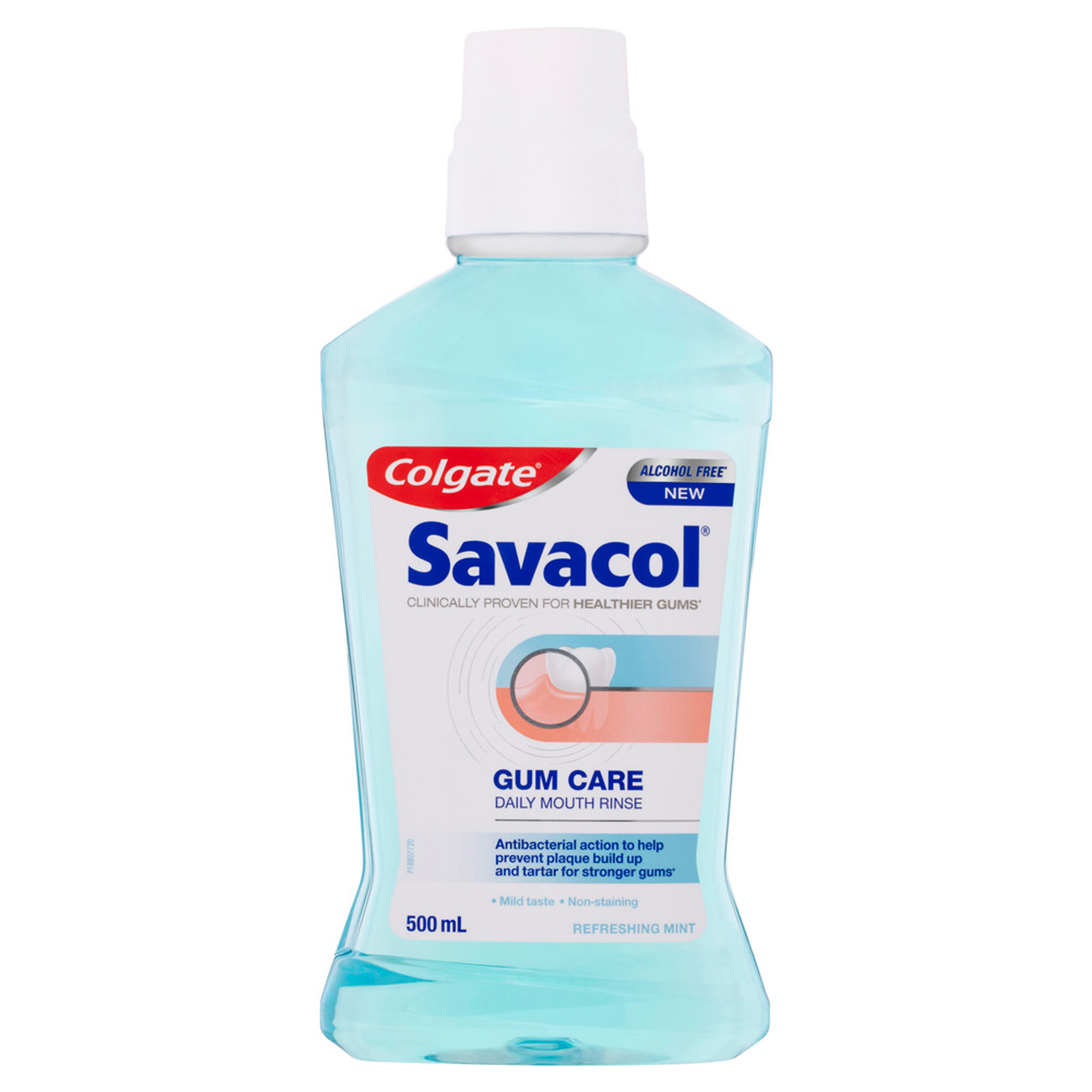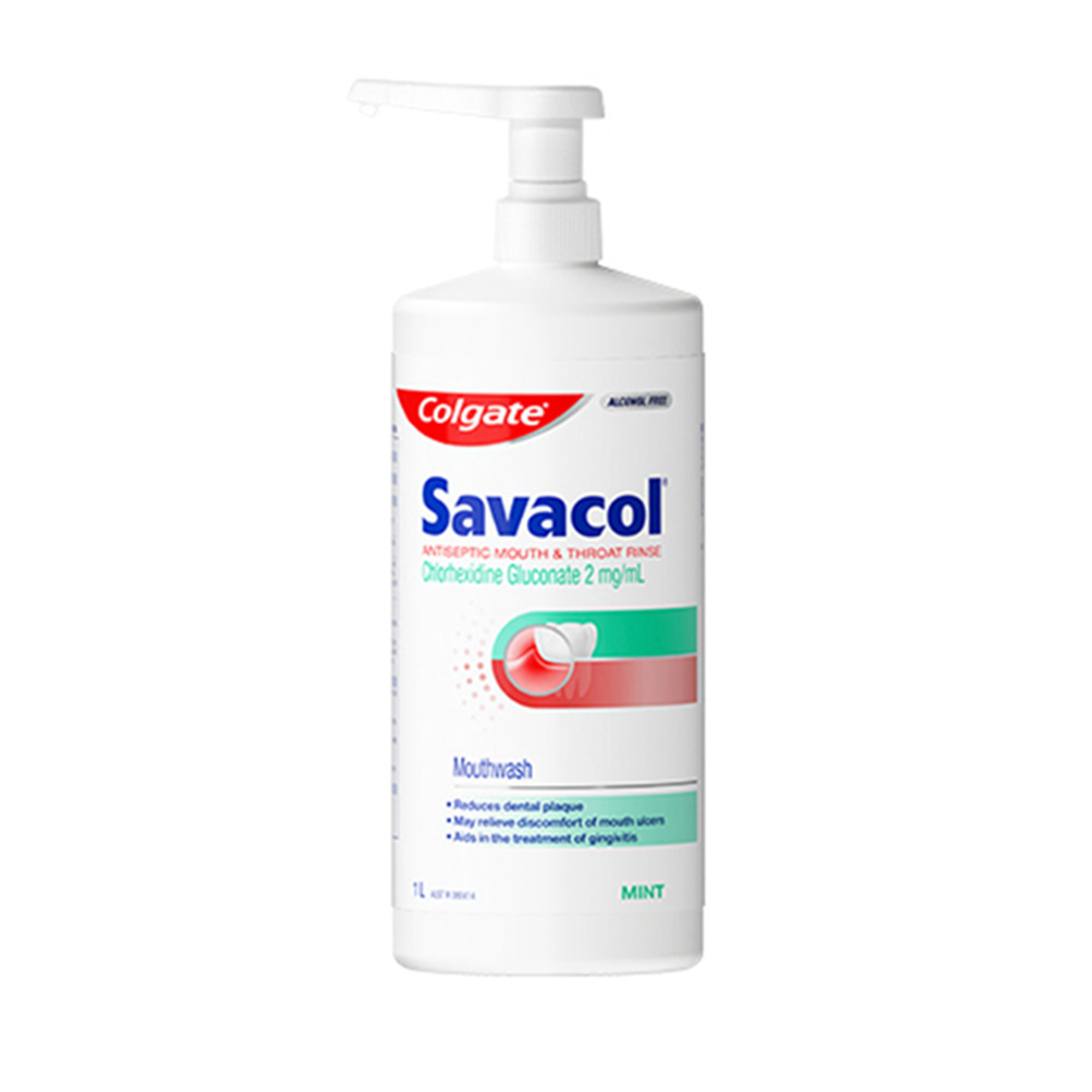
CJ: In this interview, we sit down with Dr Arosha Weerakoon, a fellow Colgate Advocate for Oral Health who is a current academic at the University of Queensland. Dr Arosha is the Principal Dentist and owner of Tewantin Family Dental. She is also an Honorary Lecturer at the School of Dentistry, University of Queensland (UQ). Arosha has a Masters in Public Health and a PhD on dental materials and dentine. She is a Fellow of the Royal Australasian College of Dental Surgeons, and holds honorary Fellowships with the International College of Dentists, and the Pierre Fauchard Academy.
With years of experience in academia, clinical practice both in public and private dental, and business ownership, Dr Arosha provides valuable insights into the daily life of a dental academic and many other career paths for dental professionals.
Thank you Dr Arosha for agreeing to meet with us today to talk about your experiences as a dental academic! Clinical dentistry is not only the sole path for dental professionals after graduation and you are a shining example of many pathways available for clinicians.
As an academic, our key performance indicators are very different to those often used in clinical practice. Often universities base an academic’s output against three domains:
- Teaching
- Research
- Governance, Leadership & Engagement
Could you share your experiences with academia in the past 10 years beginning with teaching?
Dr Arosha: Over the past 10 years, I’ve ventured into all three domains in my career. They were particularly challenging years, but also interesting. In addition to what students perceive, such as grading, exam creation and evaluating assignments, I had the opportunity to engage with people outside our dental community, I was one of the first academics to embrace technology enhanced learning with my students, and I led the integration of basic sciences with dentistry through the ‘Virtual patient’ program.
Teaching
During this period, I took on the role of teaching and coordinating courses within the Dentistry and BOH programs at UQ. I had the privilege of engaging with and coordinating guest speakers who were champions in their community and experts in their respective fields. I also enjoyed creating lectures that leveraged technology to enhance teaching and learning experiences. One of my favourite methods is the flipped classroom, where students engage in pre-reading and pre-recorded lectures before coming to class. And instead of having me standing and talking at them for an hour, we could then unpack the information in their pre-readings by engaging with each other in interactive workshops.
I also devoted time to various meetings, whether with staff or in the development of new course content. An exciting endeavour during this time was the Virtual Patient program, integrating subjects typically taught in isolation into a holistic patient-centred approach. My background in Public Health and clinical experience greatly contributed to this initiative. We had a lot of fun creating patient scenarios based on real-world experiences that were based on learning objectives. The project was partially led by Professor Pauline Ford, and we had funding to hire actors who provided us with video shorts that helped our virtual patients come to life.
As an Academic, the universities provide a lot of opportunity to develop your interests and attend courses to enhance your skills. I embraced the culture of learning and development as much as I could by attending courses and workshops. I learned a lot of new skills, but I also met many interesting people outside of my field. That’s something I also transferred to my research work.
CJ: I recall from my own experiences as a student learning through a flipped classroom format. It certainly helped me undertake some self-directed learning prior to class and then have class time dedicated to in-depth application of the content. The next domain is research, can you tell us about your experience in that area?
Dr Arosha:
Research
I am a curious person at heart. My first experiment that I can recall involved mixing various liquids and creams, including my grandmother’s hair dye and her face creams at the age of four in this little laboratory I had set up using my tea set. As you can imagine, this was my first foray into the significance of informed consent, or in my case, the lack thereof.
As an undergraduate, I spent my summer vacations doing projects with Professors Ian Meyers, Anne Symons and Laurie Walsh. I presented one of those projects as a poster presentation at the International Association for Dental Research ANZ meeting, and won the Colgate award in the undergraduate category. My win allowed me to present my work in the world meeting that was held in Gothenburg, Sweden. It was attending this meeting that really cemented my love for research. There are these people all over the world who put in all this hard work, that are driven by curiosity and a need to solve a burning issue. To meet like-minded people who are engaged, curious and interested - that blew my mind. For example, Per-Ingvar Branemark, the father of modern implantology was at the meeting. These people are real-life dental rock stars.
And so somewhere in that moment in my life.. I decided that one day, I would pursue a PhD. In between all of this, I also had a lot of fun delving into the research and presenting at conferences on various projects that involved the scholarship of Teaching and Learning, developing the Virtual Patient project and the E-exam project. At the time, I wanted to do my PhD with the School of Public Health, and so I completed a Masters in Public health in anticipation of this. I completed my degree, published qualitative research papers and co-authored work with other researchers such as Dr. Kelsey Pateman which explored the lived experiences of patients with head and neck cancer. These research efforts culminated in several publications and a lot of conference presentations.
But due to many circumstances, and the opportunity to work with Ian Meyers and Anne Symons arising, I decided to move back to Dentistry. My PhD now aligned more closely with my clinical background. And my final PhD thesis was titled 'Dentine, Adhesive Interfaces and Physiological Ageing’.
CJ: Wow, what a journey Arosha! And what accomplishments in research! I love how through dental research you can cast your net wider beyond the patients you provide clinical care to and assist in developing evidence to inform improvements to how dental professionals can provide care.
So the last component is engagement, can you tell us a little bit about what activities you undertook in this domain?
Dr Arosha:
Engagement
Absolutely! Community engagement played a significant role during this period. I engaged with various community activities, including the ATSIS unit and Homeless Connect. Our students had the opportunity to learn from community representatives, contributing to a well-rounded education. Furthermore, I began writing articles for The Conversation media group, some of which garnered international attention, being translated into languages such as Arabic and Danish. I also authored pieces for UQ and Colgate as an Advocate for Oral Health. Until June this year, I served as the Oral Health Representative for the Sunshine Coast Clinical Council, fostering collaboration with healthcare representatives in the region.
I attended a course related to social media engagement while I was teaching at UQ. At this course, I met a fellow academic who was in the field of Science Communication, and so I became a bit obsessed about this field.
CJ: Can you explain to us what science communication is?
Dr Arosha: My take on it is that it’s the distilling of complex scientific principles using everyday language and concepts so that we can reach and educate more people .
I firmly believe that if you can simplify complex concepts and explain the 'why,' you empower your patients to take charge of their health. Securing research funding presented challenges, prompting me to get creative. Two pathways emerged: finding supervisors with existing project funding or pursuing a topic I was passionate about and charting my own course. I chose a more challenging pathway, where there was no existing project or funding, but it allowed me to pursue a topic I was interested in.
Many of my applications for research funding were rejected, and I decided to step out of my comfort zone and participated in the Pitch It Clever competition, Australia’s top science communication award, hosted by Universities Australia. Universities Australia is the governing body of all of our Universities. The rewards were exponential: I secured funding for my research through the generous support of the Colgate Research fund, a monetary prize, I attended the conference with all of the leaders of our Universities, and I won an internship with The Conversation at their Melbourne Headquarters. Crafting a compelling 2-minute video during my Christmas break led to a remarkable outcome. Subsequently, I authored eight articles for The Conversation, each addressing oral health topics, collectively garnering over 560,000 reads worldwide. Some were even translated into languages such as Arabic, Danish, with more translations in the pipeline. These articles in turn attracted media attention, and I have given many radio interviews with media outlets such as ABC which added a touch of excitement. The satisfaction of potentially helping hundreds of thousands of people through my work was immensely rewarding.
During this period, I juggled these endeavours alongside personal challenges, including illness, caring for a terminally ill mother-in-law, and raising a school-aged child. I also maintained part-time work in private practice. Eventually, as the university underwent restructuring and a new head of school took the helm, I transitioned from a paid position to an honorary role, while simultaneously completing my PhD. This change afforded me some breathing space. For several years, I continued to deliver lectures solely in an honorary capacity. Preparing a one-hour lecture could take anywhere from 4 to 8 hours. Although unpaid, this arrangement granted me the freedom to focus on my PhD and clinical work without the additional responsibilities of exam marking and coordination.
CJ: Your journey is truly remarkable! It's evident that as an academic, you have the autonomy within reason to allocate your time across these diverse domains. What key advice would you offer to aspiring dental professionals considering a career in academia?
Dr Arosha:
Develop a passion for Teaching and Research
Teaching can be creative and engaging. You have an opportunity to influence the next generation of dental practitioners, and the follow-on effect of helping their patients. Mentoring is important, but also remember that they will be your colleagues one day.
Networking and Collaboration
Encourage building professional networks and collaborating with peers and experts in the field to enhance knowledge and opportunities. Networking and collaboration is incredibly central to teaching and particularly research. I love to present my work at conferences, and not necessarily dental ones. Early-on in my PhD, one of my co-investigators, Dr Sandrine Roy, encouraged me to present my early research findings at the Light Microscopy Australia Conference. I ended-up winning the Best Presentation award, and met and in the end, collaborated with the people who are now my co-investigators/collaborators from different institutions and diverse backgrounds.
Participate in Continuing Education
Working in a university environment ensures you remain at the forefront of dental developments, allowing you to advocate for evidence-based practices that can reshape the field.
Publishing and Presenting
Advise aspiring academics to engage in publishing research papers and presenting at conferences to gain visibility and contribute to the field. Getting my first publication was incredibly challenging. It took me a long time to get my head around writing ‘academically’, and there were many rejections, many iterations, and many re-submissions before I ended-up with four peer-reviewed publications. But I personally believe, you can’t stop at publishing. We are in an era where a lot of research gets published every week. If you want yours to be noticed, it’s important to also ‘spread the word’ ; social media, emailing colleagues, conferences are the best places.
Balancing Clinical and Academic Duties
I call my technique segregating, but others might have a different name for it. I don’t believe you can do everything at once. It’s much easier to focus on one thing at a time and give it all your attention. So, I developed this technique where I dedicated days to clinical, research and teaching and did my best not to let any overlap occur. On my clinical days, I focussed only on being a clinician... and the same for the rest. At the end of my research day, I would write a list of things I had to continue or start on my next research day that was often 6- 7 days away. This way, I knew I had a plan, and I could pick-up where I last left off.
The only time this didn’t work was when I had to write my papers and thesis. When you are trying to read a lot of complex academic papers, synthesise their findings and then put it down on paper it helps to have a running train of thought. So, I ended up taking blocks of time off clinical over the course of months.
Seek out Mentorship and Guidance
I am very fortunate to have some wonderful ‘dental parents’ including Professors Ian Meyers, Pauline Ford, David Thomson and Anne Symons. They have taught me many invaluable lessons, and like me, three of the four are practising clinicians who have a passion for teaching and research. I hope to pass the lessons I have learned to the next generation, should they show interest.
CJ: Thank you so much Dr Arosha for providing your insights into the life as a dental academic, I know your advice will be of great benefit for all dental professionals looking to shift into academia!
Dr Arosha Weerakoon is the Principal Dentist and owner of Tewantin Family Dental. She is also a lecturer (hon) and PhD candidate from the School of Dentistry, University of Queensland (UQ). She holds a Fellowship with the Royal Australasian College of Dental Surgeons (2007), and a Masters in Public Health (2014). In November 2022, in recognition of her commitment to professional learning and development, Arosha was awarded the BOQ Specialist Practice Bursary for Dental Excellence from the Australian Dental Association (QLD). In 2019, Arosha was awarded the Brisbane Lord Mayor’s Convention Trailblazer Grant. In the same year, Dr Arosha was awarded the top prize, The Vice Chancellor’s Award, for her research pitch titled, ‘It’s about bonding with fillings’ hosted by Universities Australia. As part of her prize, Dr Arosha completed an internship at The Conversation Media Group Headquarters in Melbourne. To date, she has published eight articles promoting oral health with The Conversation Media Group that has garnered over 500 000 reads. Arosha believes that community engagement, interdisciplinary collaboration and patient empowerment is the key to improving oral and general health for all. Arosha hopes to use her role as a Colgate Advocate for Oral Health to create meaningful discussions with oral and general health professionals to improve health practices, patient outcomes and to encourage more clinicians to engage with research.
Dr Arosha Weerakoon Social Channels:
William 'CJ' Carlson-Jones is an Oral Health Therapist currently working as a lecturer with the University of Sydney teaching into their Bachelor of Oral Health program. Completing his Bachelor of Oral Health, Graduate Certificate in Oral Health Science, and Master of Business Administration CJ has strong aspirations to facilitate accessible, high quality dental care for all Australians. CJ has also commenced further studies undertaking a Graduate Certificate in Educational Studies (Higher Education) at the University of Sydney and a Doctor of Philosophy with the University of Queensland. His research will focus primarily on impact the transitional workforce from dental therapist to oral health therapist might have upon consumers, public dental services, tertiary institutions, and regional areas. He is the incoming President for the Australian Dental Oral Health Therapists’ Association (ADOHTA) and is a strong advocate for a team approach to dental care. CJ continues to strive for high-level corporate governance through his membership with the Australian Institute of Company Directors (AICD). He is a founding representative on the Colgate Advocates for Oral Health: Editorial Community.
Dr Carlson-Jones Social Channels:
Join us
Get resources, products and helpful information to give your patients a healthier future.
Join us
Get resources, products and helpful information to give your patients a healthier future.











